Sustainability in teaching and learning (STL) is the deliberate construction of learning experiences, across disciplines, so that graduates can demonstrate proficiency in competencies for sustainable development.
Sustainability in teaching and learning includes:
1. Course outcomes that focus on the development of such competencies.
2. Instructional strategies that provide opportunity for students to practice and get feedback
3. Assessment that directly measures student skill level in the competencies.
All are required to support students in reliably developing these competencies by the completion of an undergraduate degree at USask.
We must commit to deliberately designing courses and programs to systematically build sustainability competencies in our students.
This requires engaging in social, environmental, and economic development that meets the needs of the present while mindfully and respectfully protecting the ability of future generations to meet their own needs.
Undergraduate Competencies in Sustainability
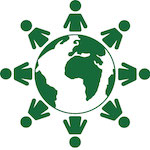
-
I can navigate cultural differences in verbal and nonverbal communication to negotiate a shared understanding towards sustainability.
-
I can apply knowledge and skills to meet global or local sustainability needs.
-
I can use a diversity of perspectives and approaches to solutions for sustainability.
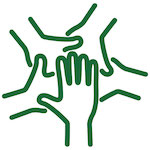
-
I can deal with conflicts in a group while problem solving.
-
I can understand and respect the needs, perspectives, and actions of others regarding sustainability.
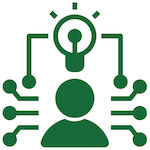
-
I can design new technology to addresss a sustainability challenge.
-
I can select or leverage technology to address a sustainabilty challenge.
-
I can consider the ethical implication for adopting or adapting technology to address a sustainability challenge.

- I can adapt and apply skills, abilities, theories, or processes gained in one situation to new situtations to address sustainability challenges in original ways.

-
I can write or speak on sustainability in a way that is inclusive and persuasive.
-
I can tailor my speaking or writing to the audience to further sustainability.
-
I can listen and respond to alternate, divergent, or contradictory perspectives or ideas fully.
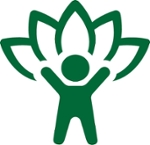
-
I can continually evaluate my motivations and actions to deal with my feelings and emotions regarding sustainability.
-
I can confidently try untested and potentially risky strategies to solve problems (regardless of failure or success).
-
I can extend a novel or unique idea, question, format, or product to create new knowledge or knowledge that crosses boundaries.
| "The most complex, radical climate technologies on earth are the human heart, head, and mind, not a solar panel." -Paul Hawken |
Community Engaged Projects
Opportunities for USask students to contribute towards sustainable actions that achieve environmental, social, and economic benefits with community partners while developing and reflecting on the competencies related. This is mutually beneficial – partners can complete smaller, impactful projects and USask students can gain career-ready skills through experiential learning. Students should have opportunities to reflect, share, act on sustainability while developing the sustainability related competencies above.
You might be interested if you are:
- A USask student seeking sustainability skills through a 30-40 hour experience placed with a community organization. Please check CareerLink for possible projects. Students receive a bursary upon completion of the project.
- An organization looking for support completing a small 30-40 hour project related to sustainability. Please contact Tenneisha Nelson to discuss your idea. Cost of a placement is on a sliding scale.
Writing Sustainability-Centred Course Outcomes
You can help students improve their sustainability competencies by developing course outcomes that align with the undergraduate competencies that describe ways students will actively demonstrate those competencies in the course. For example, students might:
- Describe the role of discipline in a sustainable system (Communicate Meaningfully)
- Model and encourage perspective taking on sustainability issues in a group (Nurture Effective Relationships)
- Choose the most effective technologies to exchange ideas, facts, and perspectives about sustainability with others in and beyond the course (Leveraging Technology)
- Communicate and collaborate effectively within diverse groups on approaches to sustainability (Engaging in our intercultural society)
- Employ adaptive design, systems thinking, and problem solving to sustainability problems (Adaptive Design and Problem Solving)
- Reflect on sustainability issues by considering impacts on the 5Ps (People, Planet, Prosperity, Peace, and Partnerships) and personal resilience. (Cultivating Resilience)
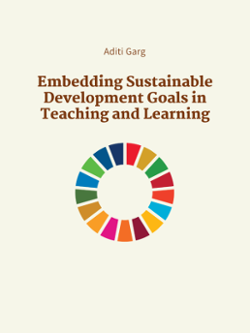 |
Learn more about the SDGsEmbedding Sustainable Development Goals in Teaching and Learning |
Practice and feedback
Disciplinary content and knowledge are not enough to shift sustainability goals. Many sustainability solutions are as much about communication, working together, and negotiating diversity as they are about technologies, political implications, or facts.
For example, to “Communicate Meaningfully” your students should:
- Exchange ideas, facts, and perspectives about sustainability with others. As with many acquired skills, students are unlikely to intuitively do it well on the first try.
- Thus, students need to practice shifting communication depending on the audience and purpose.
- For practice to be effective, students then need feedback about their attempts so that they can improve how they mobilize their knowledge.
- Finally, their grades, or any assessment, should reflect how competently they can communicate about sustainability.
Teaching practices
Below are teaching practices that help build sustainability competencies:
The way we each relate to the land and position ourselves helps students develop their own ideologies, which impacts their practices. Embedding reciprocity and kinship in our teaching is important for wāhkōhtowin and good relations.
Transformative teaching requires educators to create conditions for students to experience a large magnitude of change within the short timeframe of an academic term. Opportunities for students to remove themselves from their ordinary, such as through Indigenous land-based education, experiential learning, group work, case studies, authentic assessment and other immersive exercises have the most impact to shift students’ mind and heart sets while developing the necessary technical skill sets.
Use journals, peer conversations, pre/post surveys, and questions such as, “what would you do differently knowing what you know now?” to help students continuously reframe and contextualize themselves within their learning.
See more: Idea Book Chapter on Reflective Learning
You may not identify as an expert in sustainability. However, your discipline is likely part of the solution to meet global goals. Embedding sustainability helps students see how their local lived reality fits within a global context. Making connections between your research, scholarship, artistic work, or profession, can help students be inspired and keep learning relevant.
Learn more in the USask Learning Charter Educator Commitments.
The reality of practicums, placements, or other community-based learning is that it requires community connections. These partnerships are conventionally informal and built on the social capital of individual faculty however there are resources at USask to help you.
Reach out:
- Sustainability Living Lab for help using the campus as a learning resource
- Sustainability Committee, USask sustainability student groups or student volunteer opportunities to connect formal and informal learning
- Sustainability and Education Policy Network, an international sustainability education policy and practice network coordinated by the University of Saskatchewan’s Sustainability Education Research Institute
- GMCTL for community-based learning support
- Office of Sustainability
Rationale
The University Plan 2025 strategic plan calls for it to be The University the World Needs. A university whose graduates have the drive, the curiosity, and the humility to work with others in addressing the greatest challenges and opportunities the world faces. Through nakaatayihtaamoowin, we understand sustainability to mean protecting and honouring the wellness of all humanity and creation by taking care of the relationship with which we’ve been entrusted — with the land, with the air and water, with our students, colleagues, and neighbours — guided by mindfulness, respect, and reverence.
USask’s Sustainability Plan: Critical Path to Sustainability, guides the institution’s approach to sustainability. It identifies the United Nations Sustainable Development Goals (SDGs) as an organizing framework for guiding our understanding of sustainability. The plan calls for USask to support a generation of learners to shift mindset, expand skillset, and accelerate action to achieve the SDGs.
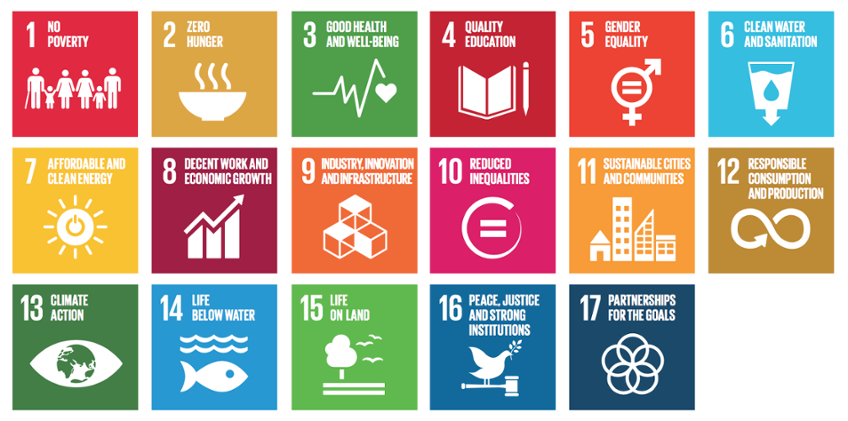
Sustainability Faculty Fellowship
2024-2026 Fellows
The Sustainable Faculty Fellow is an individual who has:- Demonstrated the ability to meet commitments.
- A desire to embed open and sustainability within their own course such that students are taking action towards sustainability and the Sustainable Development Goals (SDGs).
- The qualities of an amplifier: clear philosophy on teaching and positionality, empathy for others’ lived realities, ability to have difficult conversations with peers, open to new ways of doing and being, and the explicit support and commitment of their academic unit.
- The support of academic leadership to pursue this work.
- Develop their academic leadership skills.
- Act on internal motivations for a more sustainable and just world.
- Bridge their teaching and scholarship.
- Engage with a community of practice.
| Term | What Faculty Fellows will focus on |
| Spring 2024 Summer 2025 |
Designing a course where students are taking action on sustainability. The course will have constructive alignment that teaches the USask competencies. The sustainable action should be shared openly so that it can help others move towards the SDGs. Expect 10-20 hour time commitment of meetings and facilitated learning May 15-June 30. |
| Fall 2024 Winter 2025 |
Implement the course design (teaching). Open reflecting and sharing about teaching on sustainability. Once a term meeting between Fellows and Academic Leadership. |
|
$3500 funding is tied to completing the spring programming, one openly shared reflective piece about embedding sustainability, and completing regular check-ins with academic leadership. (Sept, Jan, Apr) |
|
| Winter 2025 | Facilitation and change management skills. Action plan for change. Catalyzing others. Creating support materials for faculty. Designing opportunities for other faculty. Plan for 4-6 hours of scheduled facilitated learning. |
|
Spring 2025 |
Working with academic leadership. Mentoring peers and facilitating workshops for colleges. Effecting the ‘how’ as needed (co-created solutions with GMCTL staff). |
| $3500 funding is tied to completing spring programming and facilitating at least one faculty or departmental meeting for your home unit and regular meetings with academic leadership. | |
2022-2024 Sustainability Faculty Fellowship
To support faculty in designing, instructing, and assessing in ways that build student competencies for sustainability, six Sustainability Faculty Fellows were appointed for a two-year term. In the first year, Fellows worked to embed teaching practices in their own courses such that students will be able to reflect, share, and act on key competencies for sustainability. This requires the ability to align learning outcomes and assessment activities, model perspective-taking on sustainability issues, collaborate with groups or sectors beyond USask, and integrate activities where students employ adaptive systems thinking and problem solving for people, planet, prosperity, peace, and partnership.
In the second year, Fellows have worked within their colleges to support other faculty to make an impact through open educational practices and furthering learning for sustainability. This is approached in ways that meet the needs of each academic unit and may align with USask priorities such as experiential learning through community-engaged or work-integrated learning, student wellness, or other priorities.
This initiative is led out of the Provost's office with Fellows receiving support from the Gwenna Moss Centre for Teaching and Learning.
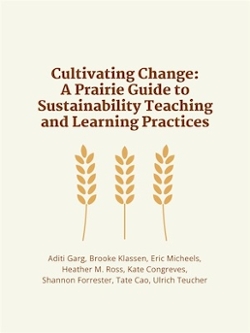 |
See What We’ve Done!To see examples of embedding sustainability across our disciplines, explore the samples in our guidebook: |
Meet the Fellows:
Loading...